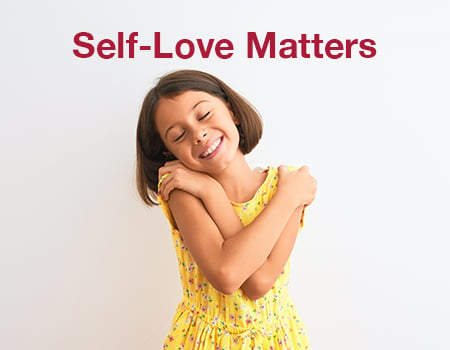Do you find yourself in a perpetual state of rescuing others, saving them from one disaster after another? Or the other people in your life belittle you rather than offer support when you need comforting or gentle advice. Do your relationships lack reciprocation? Friends and family friends enlist your kindness, but do not return the favor. Helping others is one of life’s great rewards. However, when others treat your generosity as a never-ending source, codependency can enter the relationship. Codependency is a sneaky, insidious state of mind that keeps you chasing the love and affection or waiting for others to make major life decisions—partners, spouses, children, parents—virtually everyone with whom you interact. So, let us unpack codependency.
What Is Codependency?
My working definition of codependency is living one’s life through the upheaval of someone else’s. Your life becomes the other person’s safety net, though they are quite capable of self-care or in need of a hard lesson. When you are engaged in a state of codependency, the other person’s mood, attitude, or actions trigger reactive responses within you, which you will find further down in this post. Your job, then is to keep the other person happy or deescalate them so you can return to your place of inner calmness. However, you cannot rest there for you do not know when the next crisis or outburst will happen. Your reasons for staying in this existence run the gamut of trying to keep the peace in the relationship, stave off abandonment, or earn a coveted reward at work. When you are in a group, you fear angering or offending someone else unless you go along with the prevailing opinion or behavior. You wish, secretly or otherwise, that you could be bold and aggressive like other people. What some people call self-confidence looks and feels like arrogance to you. Retaliation may loom large in your life if you speak up or challenge the majority or the more forceful person.
Passive-Aggressive Responses
One of the hallmarks of codependency, passive-aggressive responses usually are subtle and difficult for someone to build a challenging case. The behavior is inconsistent with your words but shield your feelings. A classic example with many iterations is of the husband who belittles his wife about her cooking skills and commands her to fix dinner without burning it. Instead, she “forgets” to thaw the meal, cooks the dish as usual, and it turns out still frozen in the middle. He cannot argue with her. She did not burn the meal and walks away with a smug inward smile. What began as a self-protection plan can backfire or escalate or, serve you for many years. These behaviors are retaliation as a means of self-protection, to relieve some of stress of living in the hurtful relationship from which there is often no escape. These strategies backfire as the other party(ies) engage in retaliation of their own and the whole relationship becomes quite convoluted to the point of your inability to sustain it.
Coping Strategies
Codependency actions and reactions consume a lot of energy. Trying to outguess the other person in attempts to avoid hurtful encounters is a fulltime undertaking. As stress intensifies, other behaviors surface as further attempts to attain a level of emotional comfort. Alcohol and drugs—whether prescription or illicit—are the go-to stress relievers for many people. Others turn to gambling, shopping, unsafe sexual encounters, or eating disorders. Even so-called healthy activities such as working out can be taken to unhealthy extremes. You or the other person involved may engage in absence, silence, and withholding, especially of intimacy and nurturing in the relationship.
Codependent Sacrifices
Codependents look at their lives through the lenses of others. Perpetual rescuing of the dependent person, the codependent must rearrange their life which can exact a heavy toll. Sleep disturbances, eating irregularities, abandoning, or severely limiting emotional supports, such as family, friends, recreational/entertainment pursuits, and travel plans. You find yourself keeping good news to yourself because the other person is envious of good things happening for you.
A Hard, Bumpy, Winding, Hilly Road
Watching a loved one suffer the consequences of their life choices can be heart-wrenching. But while, that is where the healing and growth take place, perpetual rescue robs the person of opportunities to assert their autonomy and connect with the powerful sense of agency within themselves. Otherwise, the person remains imprisoned in a lockstep with you that damages you both. Neither of you have the benefit of a mutually beneficial relationship which would lead to a fulfilling, long-lasting experience.
Exercises for the Codependent
The following list of journaling prompts will help you figure out where you are in the relationship, what you want for your life, assess your level of tolerance for the status quo, and consider your options. Spend time with each question or statement. There is no rush. The exception, of course, is if there is a need to act because of emergent circumstances. For each, close your eyes, breathe deeply, and search your mind, heart, and body and include your feelings. Allow the full range of your feelings to surface and sit with them without engagement or judgment. Then begin writing. Giving yourself a five- or ten-minute break every twenty or thirty minutes will help with feelings of overwhelm.
- How do the other person(s) mood and attitude affect yours?
- Detail your coping strategies.
- How healthy are your habits and activities?
- What sacrifices do you make for the relationship?
- How do they serve your life?
- How do they hinder your life?
- What are the self-care activities you have built into your day?
- Who is your support system?
- Write how each person brings joy to you.
- What reciprocation do you want to receive from the other person(s)?
- In what ways do you want them to treat you?
- Is the other person fundamentally capable of either handling life on their own or learning how?
- What steps can you take toward the life of meaning calling to you.
- Set aside your answers and reread after a day or two. Notice your insights. When you write again, use those answers for your next prompts.
This post and the reflection and introspection you are asked to do are your starting point. Be gentle with your emotions, your heart, and your body. Give yourself a hug. Rest whenever you need a break.

Author bio: Billie Wade is a writer living in central Iowa. She is the creator and founder of Journaling to Heal, a program she designed to help people as they travel their journey of healing from emotional stress and trauma. Her background, education, and experience enhance her innate compassion and reverence for other human beings.
Billie Wade is a writer living in central Iowa. She is the creator and founder of Journaling to Heal, a program she designed to help people as they travel their journey of healing from emotional stress and trauma. Her background, education, and experience enhance her innate compassion and reverence for other human beings.
She shares her strength and hope on www.journalingtoheal.com.



Leave Comment